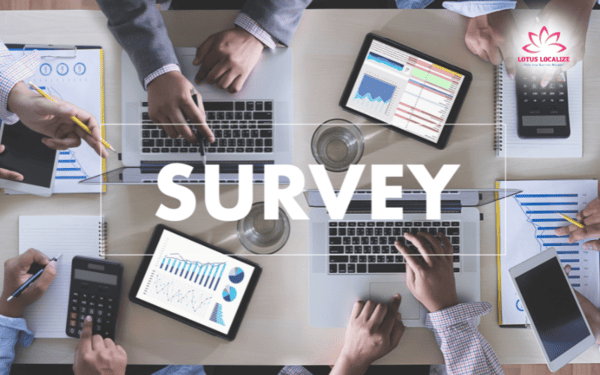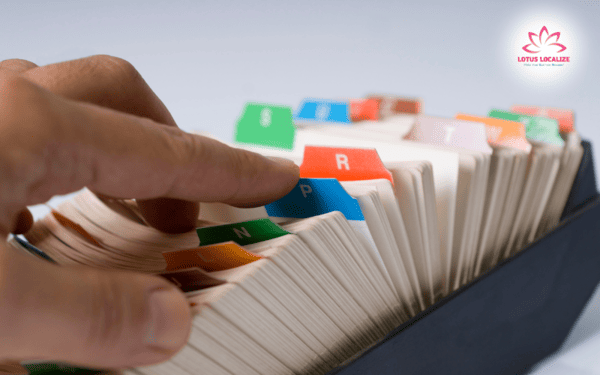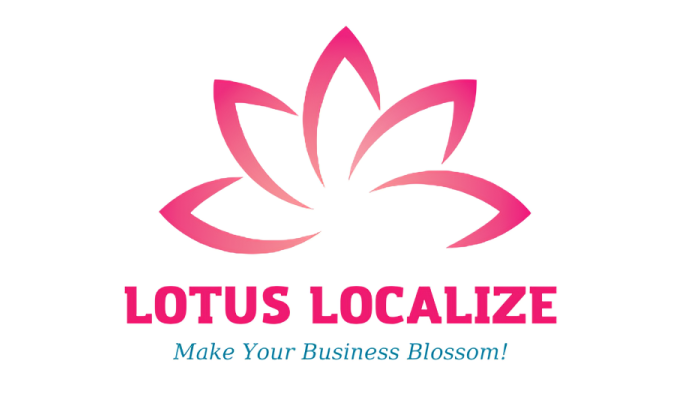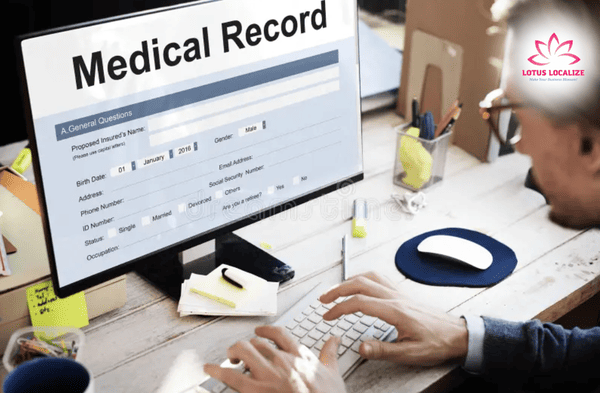
How to ensure precision in medical report translation
When it comes to medical report translation, accuracy and clarity are paramount. Even the slightest misinterpretation can lead to serious consequences. Ensuring precision in medical report translation requires a deep understanding of medical terminology, cultural nuances, and a rigorous quality control process. In this article, we’ll explore the essential steps and best practices to guarantee that your medical reports are translated with the highest degree of accuracy and professionalism.
Define medical report translation
Medical report translation involves converting medical documents from one language to another while maintaining integrity, accuracy, and specialized terminology. It is a crucial service that ensures healthcare professionals can effectively communicate with patients and colleagues across language barriers.
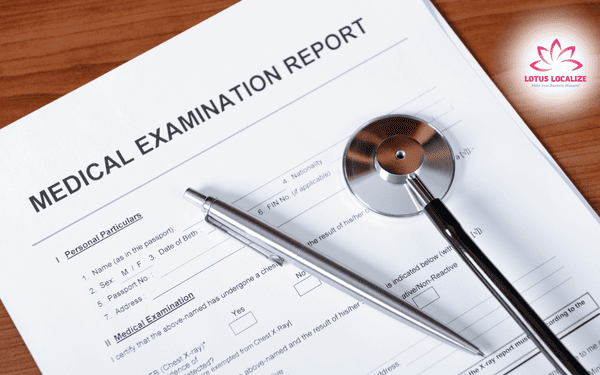
Here’s a breakdown of what medical report translation entails:
- Specialized terminology: Medical reports include highly technical language and industry-specific terms that must be translated with precision to avoid misunderstandings and ensure proper medical care.
- Types of medical reports: Medical report translation covers a wide range of documents, including patient medical histories, test results, diagnoses, discharge summaries, consent forms, and research papers.
- Cultural sensitivity: Apart from language, the translation process takes into account cultural and regional differences, ensuring that the document is not only accurate but also appropriate for the target audience.
- Legal and ethical considerations: Medical documents are often legally binding, meaning that the translated version must adhere to the same standards of accuracy and confidentiality as the original document.
- Quality assurance: The translation process involves multiple checks, including proofreading and review by medical experts, to ensure the highest standards of accuracy and reliability.
Medical report translation is a critical service that ensures the seamless exchange of vital healthcare information, bridging language gaps while upholding the accuracy and ethical standards of the medical profession.
Read more: Health insurance translation: Ensuring clarity and accuracy in global coverage
Who needs medical report translation?
Medical report translation is an essential service that caters to a wide range of individuals and organizations. In today’s globalized world, where people frequently travel, work, and seek medical care across borders, accurate translation of medical documents is crucial. Here are some key groups who require medical report translation:
Patients seeking healthcare abroad
Individuals who travel abroad for medical treatment, whether for procedures not available in their home country or for specialized care, often need their medical records translated. These reports, including diagnoses, lab results, medical histories, and prescriptions, must be accurately translated to ensure the medical professionals in the foreign country understand the patient’s health condition. Miscommunication could lead to incorrect diagnoses, treatments, or even life-threatening situations.

Healthcare providers
Doctors, hospitals, and medical institutions that treat international patients often require medical report translation to understand the medical history, medications, allergies, and previous treatments of patients. This ensures that the healthcare provider can offer the most accurate and safe care tailored to the patient’s needs.
Pharmaceutical companies
Pharmaceutical companies involved in research, clinical trials, and regulatory affairs often need to translate medical reports to comply with different countries’ laws and regulations. Accurate translation is crucial to ensuring that clinical trials are conducted correctly and that the data can be understood and approved by regulatory bodies in various regions.
Insurance companies
Insurance companies may require translated medical reports to process claims, assess the medical needs of policyholders, or verify the medical conditions of individuals seeking coverage. Accurate translations of medical reports help prevent fraud and ensure that claims are processed appropriately.
Legal professionals
Lawyers and legal professionals involved in personal injury cases, workers’ compensation, or medical malpractice lawsuits often require medical report translations. A precise translation of medical documents can provide essential evidence in court, influencing the outcome of legal proceedings.
Medical report translation serves a diverse range of people, including patients, healthcare providers, pharmaceutical companies, insurance agencies, and legal professionals. Accurate and reliable translations are necessary to ensure clear communication and the provision of safe and effective healthcare.
Why accuracy in medical report translation matters?
Accuracy in medical report translation is of paramount importance, as even the slightest error can have serious consequences. Medical documents, such as patient histories, lab results, diagnoses, and treatment plans, contain critical information that must be conveyed precisely to ensure the safety and well-being of patients. Here are several reasons why accuracy in medical report translation matters:
- Patient safety: Medical reports contain vital information about a patient’s health condition, allergies, medical history, and ongoing treatments. Inaccurate translations can lead to misunderstandings between healthcare providers and patients, resulting in incorrect diagnoses, inappropriate treatments, or medication errors. Such mistakes can put a patient’s life at risk, especially in emergency situations or when undergoing complex procedures.
- Effective treatment: When a patient seeks medical care in a foreign country or from a specialist who speaks a different language, accurate translation ensures that the healthcare provider fully understands the patient’s medical background. This enables them to develop an appropriate treatment plan, tailor medications, and avoid any potential adverse effects. A wrong translation could compromise the efficacy of the treatment and delay recovery.

- Legal and ethical implications: Inaccurate medical translations can have serious legal and ethical implications. In legal cases, such as medical malpractice lawsuits or personal injury claims, misinterpretation of medical records can affect the outcome of the case. Legal professionals rely on precise translations to present evidence, and errors in translation could undermine a case or lead to legal disputes.
- Regulatory compliance: Pharmaceutical companies, medical researchers, and healthcare institutions must adhere to strict regulations and guidelines that require accurate medical report translations. Whether it’s for clinical trials, drug approval, or insurance claims, a minor translation error can cause compliance issues, delays, or the rejection of essential documents by regulatory bodies.
- Trust and professionalism: Accuracy in medical report translation builds trust between patients and healthcare providers, especially when dealing with international patients. It demonstrates professionalism and attention to detail, ensuring that patients receive the best care possible. A clear and accurate translation also fosters better communication, allowing patients to feel more confident in the care they are receiving.
Accuracy in medical report translation is critical to patient safety, effective treatment, legal integrity, regulatory compliance, and the trust between patients and healthcare providers. The high stakes involved make it clear that medical translations should always be handled by professionals with expertise in both language and medical terminology.
Read more: Unlock global potential with expert nutraceuticals translation services
Key challenges in translating medical reports
Translating medical reports is a highly specialized task that requires not only proficiency in languages but also a deep understanding of medical terminology and concepts. Medical documents contain complex and sensitive information, and inaccuracies in translation can have serious consequences. Here are some key challenges in translating medical reports:
- Medical terminology and complexity: Medical language is highly specialized, with many terms that do not have direct equivalents in other languages. Translators must have a strong command of medical terminology in both the source and target languages to ensure that the meaning is conveyed accurately. Misunderstanding or misinterpretation of medical terms, such as technical descriptions of diseases, symptoms, or treatment methods, can result in significant errors in the translation.
- Cultural differences and healthcare systems: Medical practices, diagnostic methods, and even symptoms can vary widely between countries. For example, certain treatments or medications that are common in one country may be unknown in another. Translators must navigate these cultural differences and adjust their translations accordingly, ensuring that healthcare providers in the target country understand the context of the medical report.

- Confidentiality and sensitivity of information: Medical reports contain personal and often sensitive information, such as patient histories, diagnoses, and treatment plans. Ensuring that this information remains confidential is a significant challenge. Translators must adhere to strict privacy and data protection regulations, such as HIPAA in the U.S., and take care not to disclose any information that could compromise patient privacy.
- Abbreviations and acronyms: The medical field relies heavily on abbreviations and acronyms, many of which have different meanings in different languages. Translators need to be familiar with common medical abbreviations in both languages and ensure that they are translated correctly, while also being aware of the possibility of multiple meanings. Failure to address these nuances can lead to confusion and inaccuracies in the translation.
- Precision and attention to detail: Medical translations require a high level of precision, as even the smallest error can have significant consequences. A mistranslated word, phrase, or dosage could result in an incorrect treatment or medication, potentially endangering a patient’s health. The translator must be meticulous and maintain attention to detail throughout the process.
Translating medical reports presents numerous challenges, from understanding complex medical terminology and cultural differences to ensuring accuracy and confidentiality. To overcome these challenges, medical translators must possess specialized knowledge of both language and medicine, as well as a keen eye for detail and a deep understanding of the ethical responsibilities associated with translating sensitive medical information.
Tips for high-quality medical report translation
Medical report translation is a critical task that requires both precision and expertise. Since these reports often involve detailed health information, diagnoses, treatments, and patient history, an error in translation can lead to serious consequences. Here are some essential tips for ensuring high-quality medical report translations, along with examples to illustrate their importance.
- Use qualified medical translators: The foundation of a successful medical translation project is employing qualified medical translators. These translators should have a deep understanding of both the source and target languages, as well as knowledge of medical terminology and concepts.
- Ensure accuracy in terminology: In medical translation, accurate terminology is crucial. A small mistake in translating terms can change the meaning of the entire document.

- Adapt to the local medical context: Different countries may have varying medical practices, so it’s important to adapt the translation to the local healthcare system.
- Proofread and edit: Once the translation is complete, proofreading and editing are essential to ensure accuracy. Translators should thoroughly review the document to check for any grammatical or typographical errors, and to verify that medical terminology has been translated correctly.
- Maintain confidentiality and follow legal requirements: Medical documents often contain sensitive patient information, so it’s essential for translators to adhere to strict confidentiality agreements. Translators must also be aware of the legal implications of handling medical reports, especially when they involve cross-border healthcare.
By following these tips, medical report translation can be carried out with a high level of accuracy and professionalism, ensuring that patient safety and care are not compromised. The examples outlined here highlight the importance of expertise, consistency, and collaboration in producing reliable translations that meet the high standards required in the medical field.
Why choose Lotus Localize for medical report translation?
At Lotus Localize, we understand that medical report translation is not just about converting text from one language to another; it’s about ensuring that vital health information is communicated accurately and clearly. Our medical translation services are designed to meet the highest standards, supporting healthcare professionals, patients, and organizations worldwide in the safe and effective exchange of medical knowledge.
- Expert translators with medical knowledge: Our team of professional translators (with over 5 years of experience) is equipped with deep knowledge of medical terminology and concepts. Whether it’s translating patient history, diagnostic reports, treatment plans, or surgical records, our translators have the expertise to ensure accuracy and clarity.
- Accuracy and precision: Accuracy in medical report translation is paramount. Our translators use industry-standard medical dictionaries, reference materials, and translation memory tools to ensure that every term is accurately rendered. We also adhere to specific terminology used in different medical specialties, ensuring that terms like “cardiac arrest,” “diabetes mellitus,” or “cerebrovascular accident” are translated appropriately, avoiding any potential misunderstanding.

- Quality assurance process: Our medical report translations undergo a thorough quality assurance process. After translation, documents are proofread by a second translator, and we also provide the option for expert medical review to ensure that the content is accurate and precise. This multi-step process ensures that the final translation is of the highest quality and free of errors.
- Variety of medical reports: Lotus Localize is experienced in translating a wide range of medical reports, including but not limited to: Patient records, diagnostic reports, medical research and clinical trial data, surgical reports…
- Multilingual support: Our services cover multiple languages, including but not limited to English translation service, Vietnamese, Spanish, French, German, Korean, Chinese, Japanese, and many more. No matter the language pair, we provide accurate translations that meet your needs, whether it’s a one-page prescription or an extensive research document.
Accurate medical report translation is critical for patient safety, effective treatment, and legal compliance. Misinterpretation or inaccuracies in medical documents can lead to serious consequences, including incorrect diagnosis, treatment errors, or misunderstanding of patient needs.
At Lotus Localize, we are committed to delivering translations that ensure clarity, accuracy, and precision, supporting healthcare providers and patients in making informed decisions.
In conclusion, medical report translation plays a pivotal role in bridging language gaps within the global healthcare system. It ensures accurate communication of critical health information, enabling effective diagnosis, treatment, and collaboration among medical professionals worldwide. The process demands precision, expertise in medical terminology, cultural sensitivity, and strict adherence to confidentiality standards.
If you have any questions or need assistance with translation services for many industries: life science translation, education translation, technology translation, financial translation, marketing translation, manufacturing translation, government translation,… and interpretation services, localization services… please contact Lotus Localize immediately at 0866 224 968 or visit the website: lotus-localize.com for advice on the best solutions!
QUALITY PROMISE
Lotus Localize offers consistent, high-quality service delivery in all customer engagements. Our in-house translators and staff adhere to well-established business processes, allowing us to communicate properly, deliver on time, and surpass client expectations.




